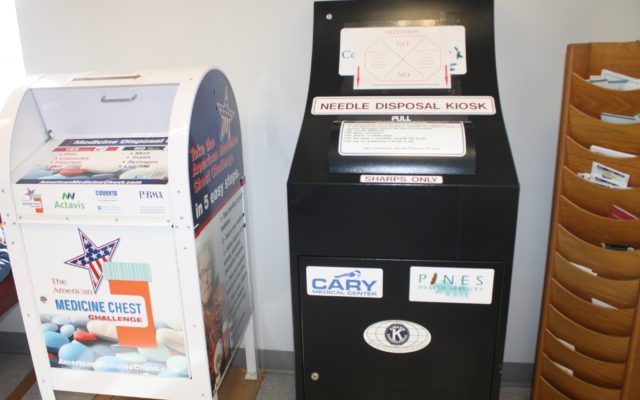
Maine senators announce Drug Take-Back Day locations
Ahead of the U.S. Drug Enforcement Agency’s National Prescription Drug Take-Back Day this Saturday, October 26, U.S. Sens. Susan Collins, R-Maine and Angus King, I-Maine announced the locations of the Maine collection sites, the full list is at https://takebackday.dea.gov/.
Area sites include the Dexter, Dover-Foxcroft, Greenville and Milo police departments and Piscataquis County sheriff’s office.
National Prescription Drug Take-Back Day aims to provide a safe, convenient and responsible means of disposing of prescription drugs, while also educating the general public about the potential for abuse of medications. For the first time, collection sites will accept vaping devices and associated substances.
At a previous Take-Back Event in April, federal, state and local government entities took back 937,443 pounds of unused, expired, or unwanted drugs at more than 6,200 locations across the United States. Over the course of the program more than 11.8 million pounds of prescription drugs have been safely collected across the country.
“Unused prescription drugs that collect in our homes can fall into the wrong hands, creating unintended gateways to addiction and fueling the heroin and opioid crisis,” said Sens. Collins and King in a joint statement. “Maine is one of the top 10 states that have disposed the most prescriptions through the DEA’s Drug Take-Back Program, and we are confident that our state will continue to lead efforts to stop the abuse of unused drugs that pose a serious threat to our children, our homes and our environment.”
Federal regulations allow pharmacies, hospitals, clinics, and other authorized collectors to serve as collection points for unused prescription medication. In 2014, following a bipartisan effort led by Sens. Collins and Richard Blumenthal, D-Connecticut, the Department of Justice granted the Departments of Defense and Veterans Affairs the ability to participate in prescription drug take-back programs at departments and affairs facilities. This initiative has helped to address the role of prescription drug abuse in many military and veteran suicides.
Last year, a sweeping opioids package known as the SUPPORT for Patients and Communities Act was signed into law. Sen. Collins, a member of the Senate Health Committee, authored two provisions included in the final legislation that will help to ensure that unused prescription drugs do not fall into the wrong hands and to bolster peer support networks for long-term recovery. The legislation also included provisions reflecting Sen. King-led provisions to expand opioid treatment capabilities, including a permanent authorization for nurse practitioners and physicians assistants to medication-assisted treatment and removing an arbitrary limit to allow residential treatment facilities to expand their efforts to save lives.